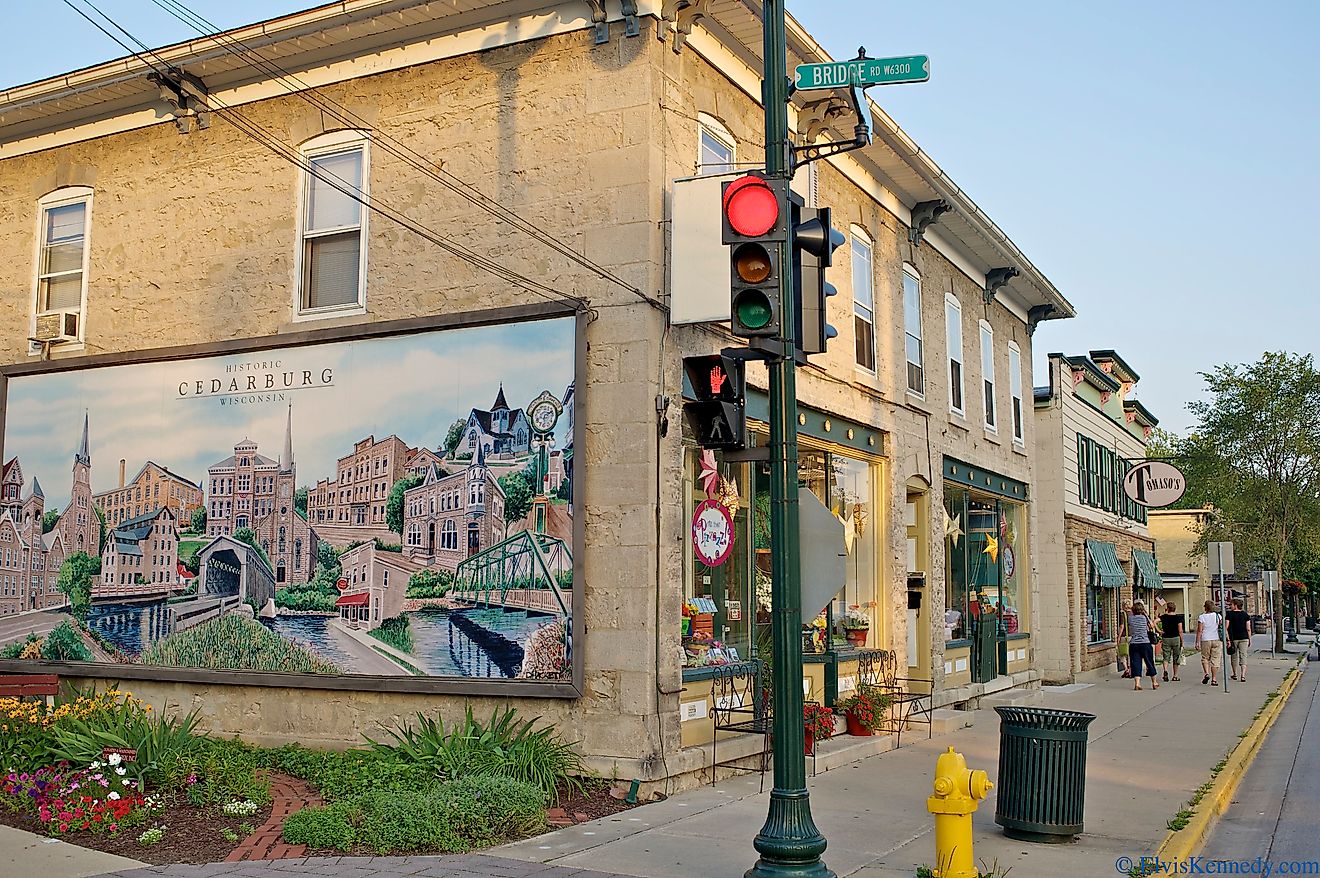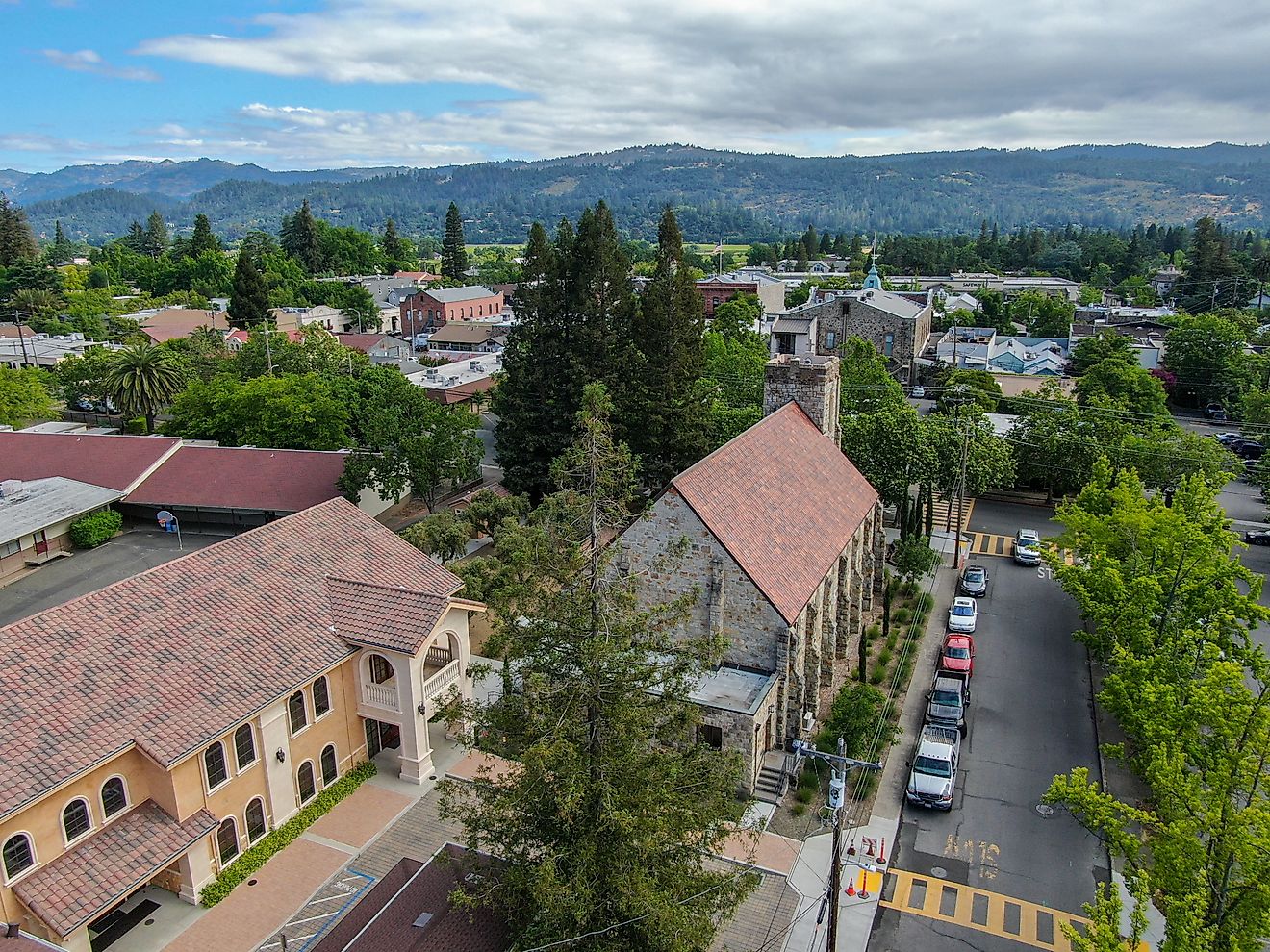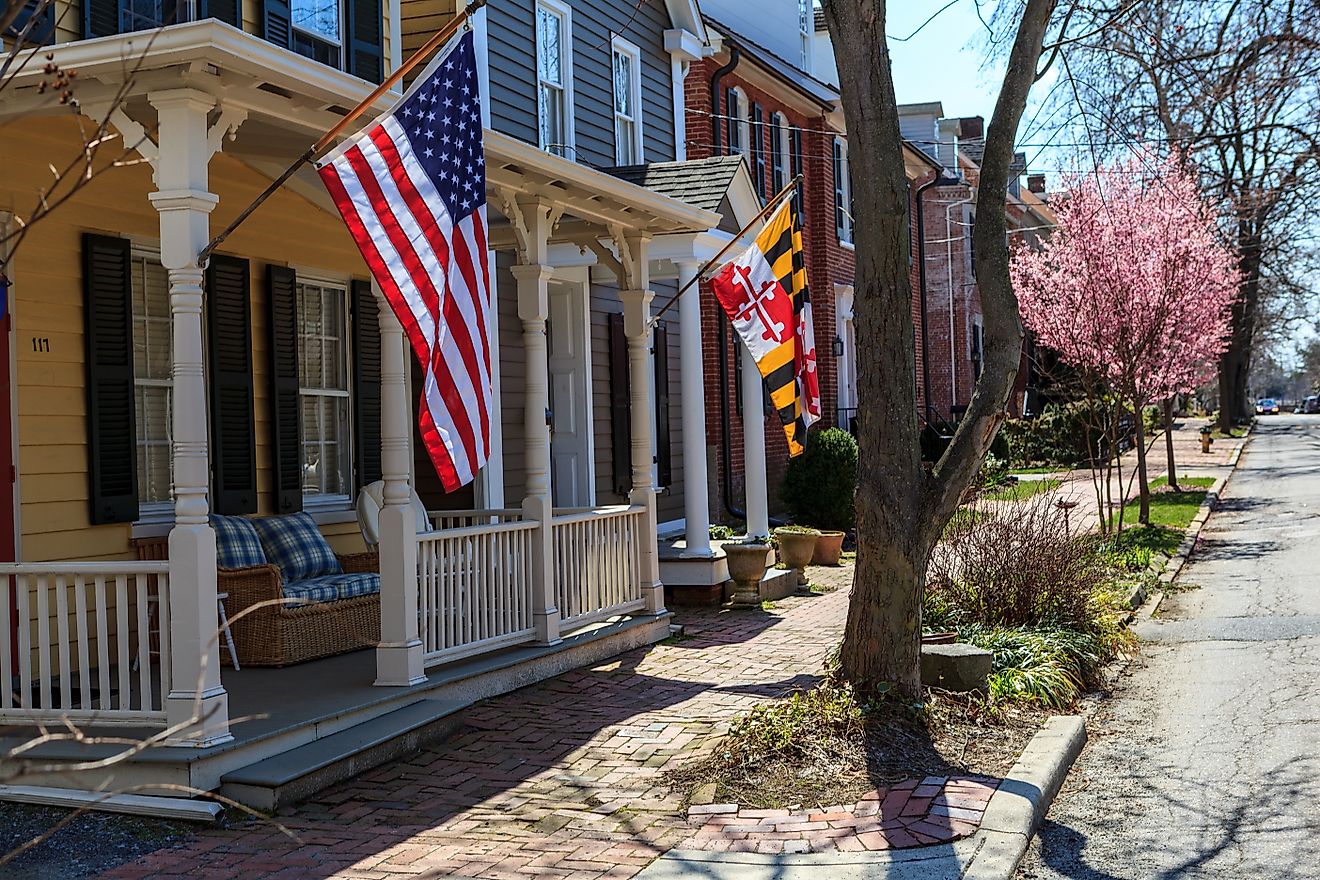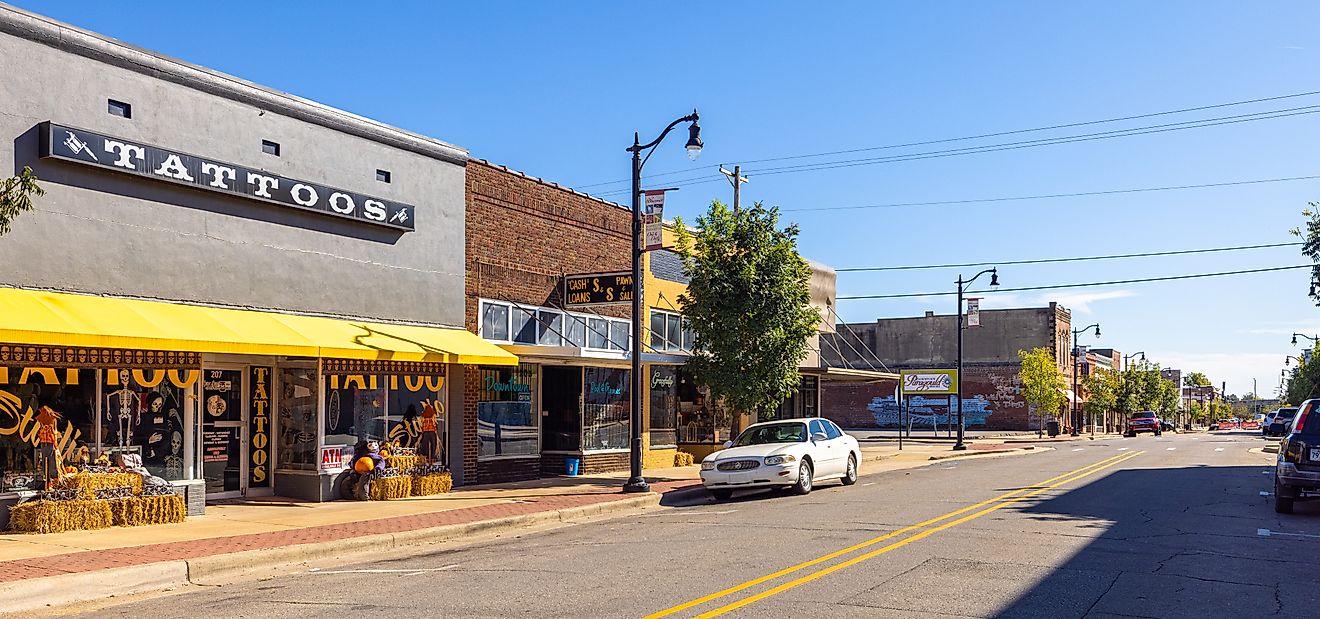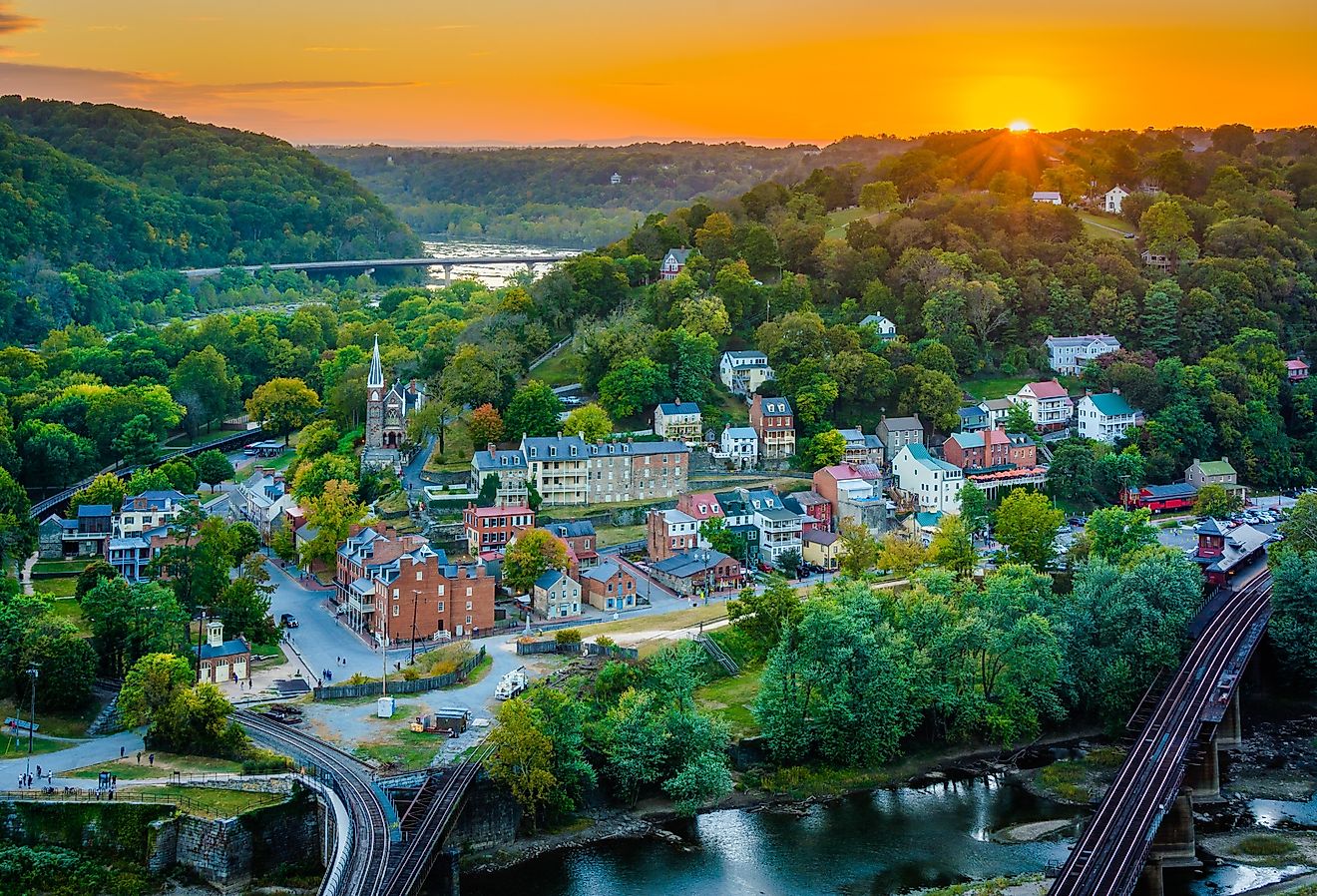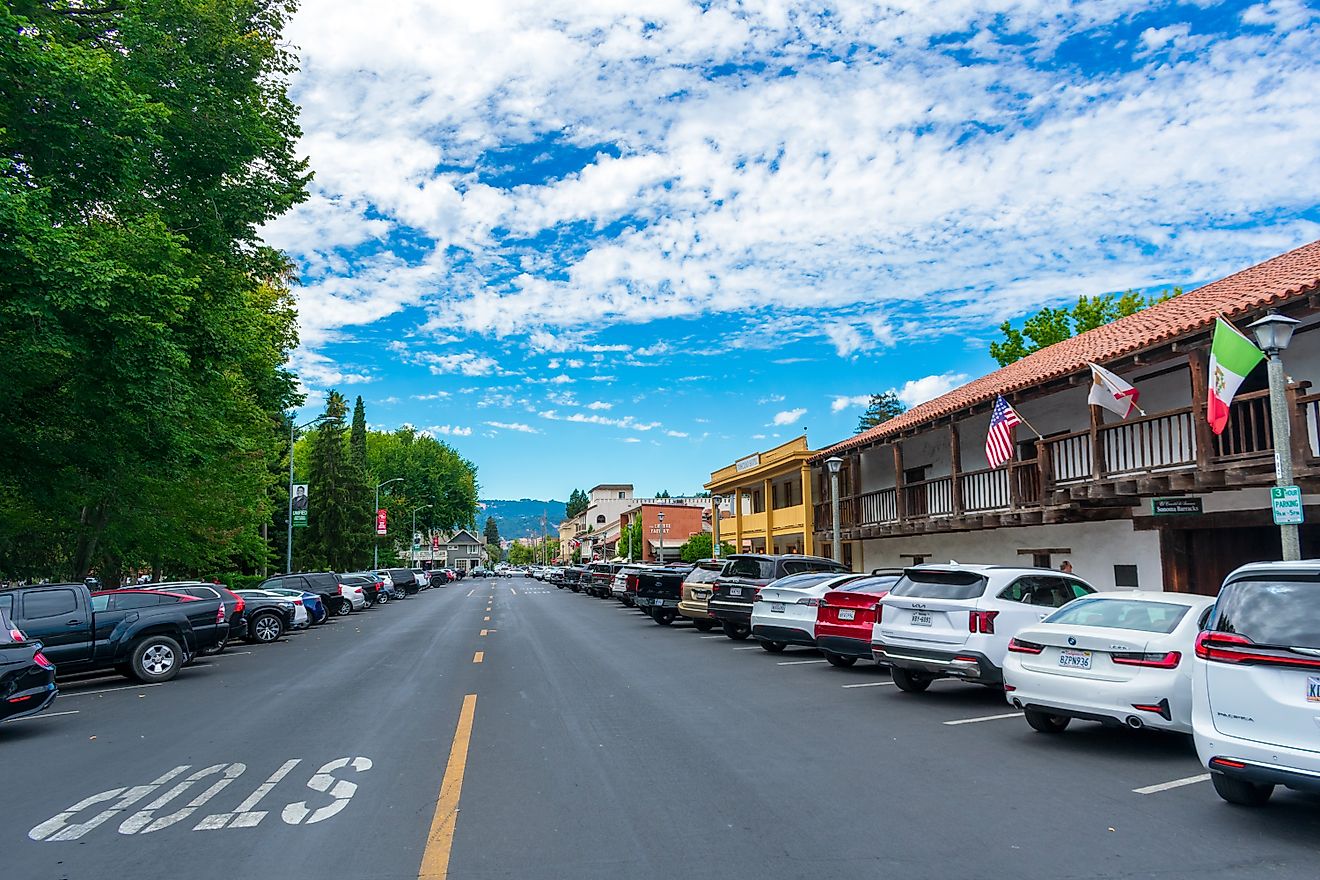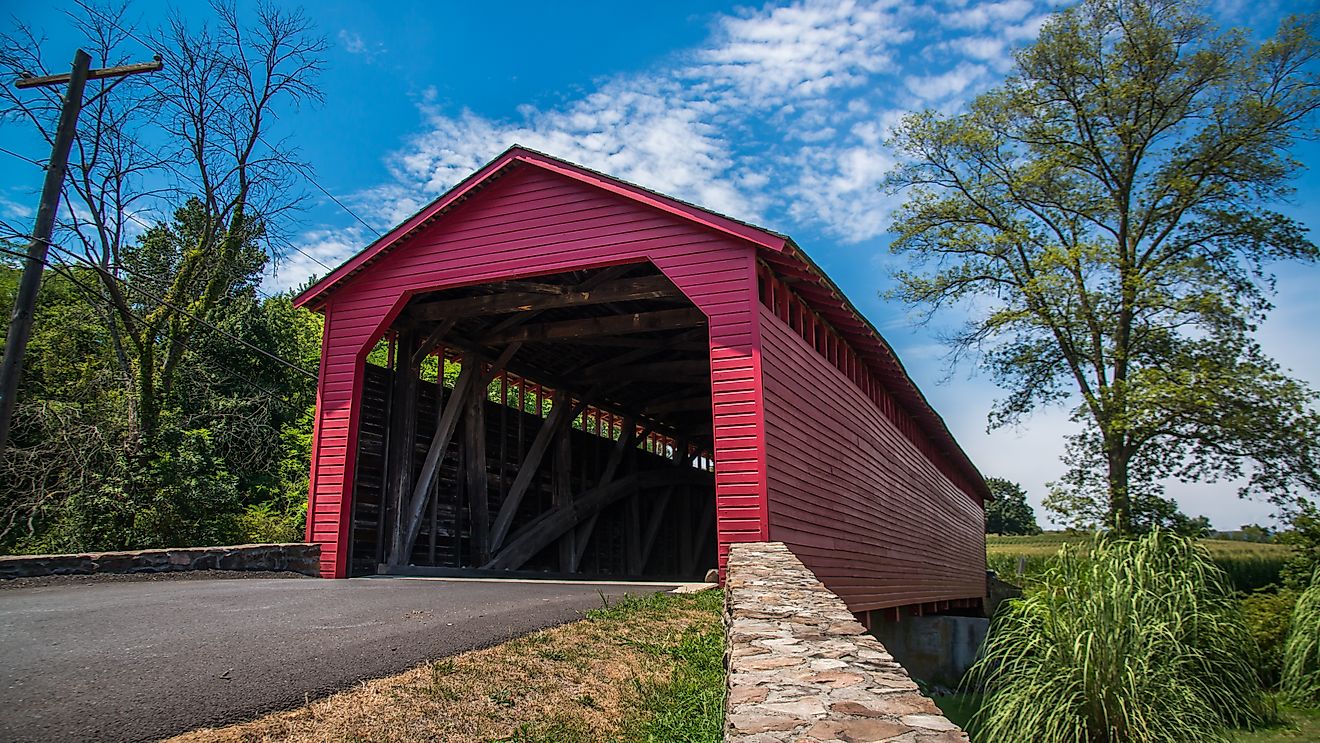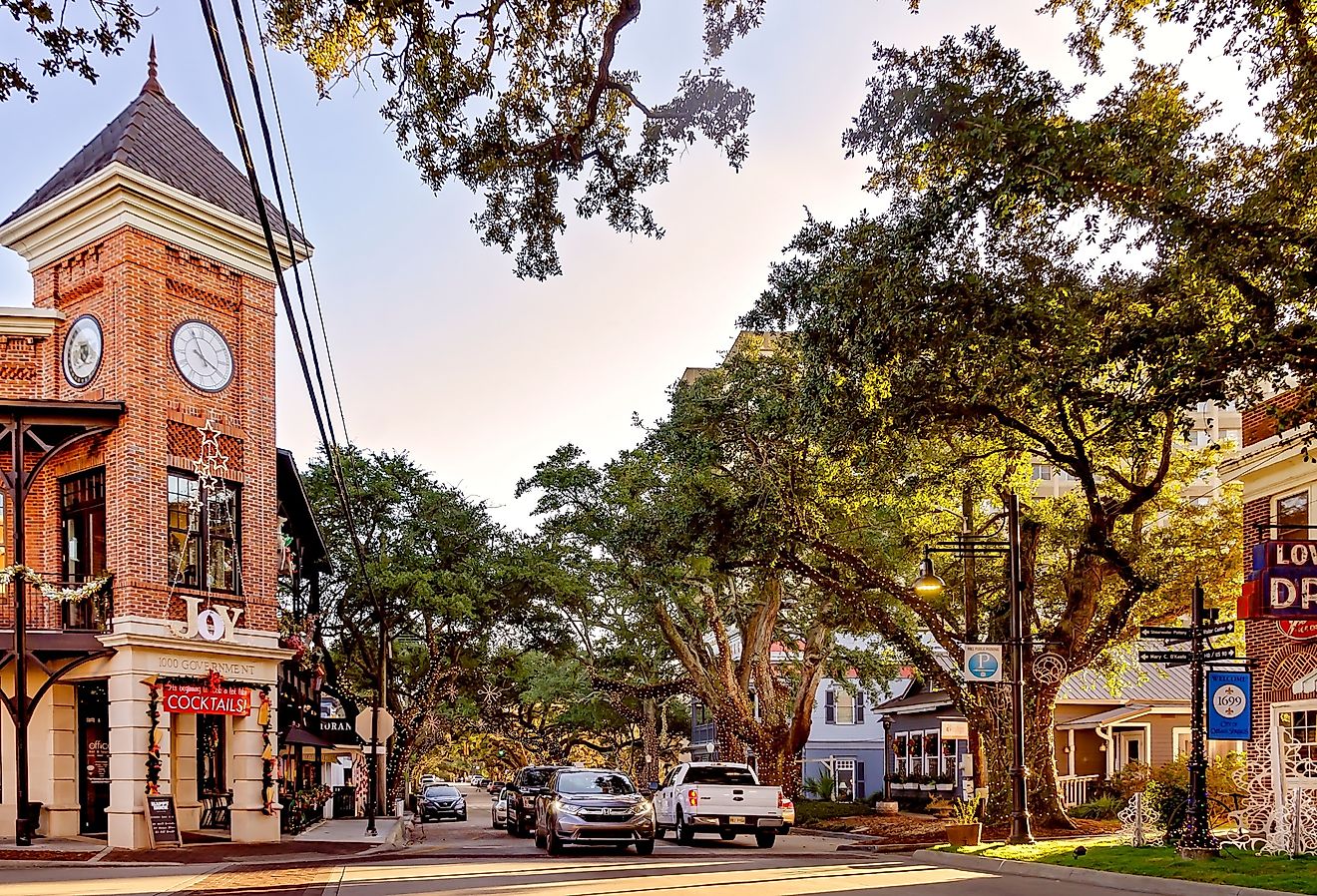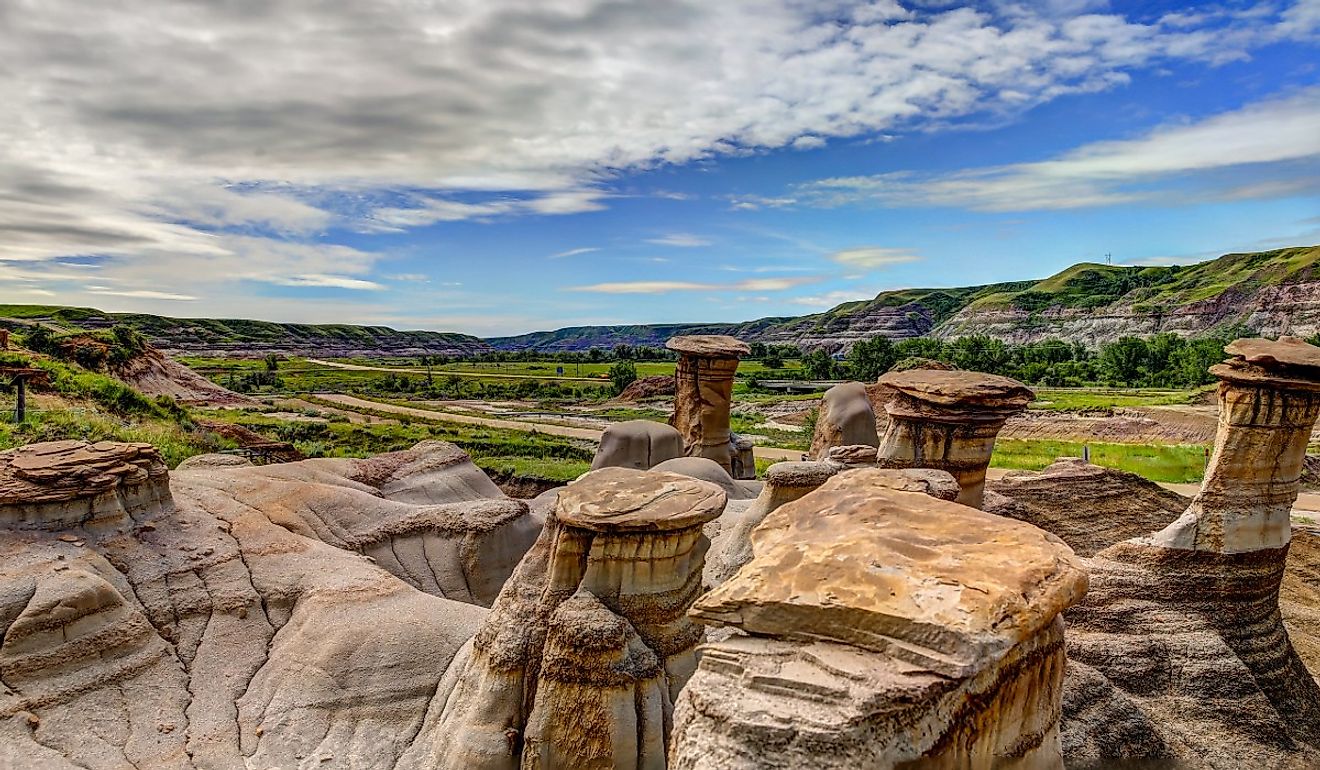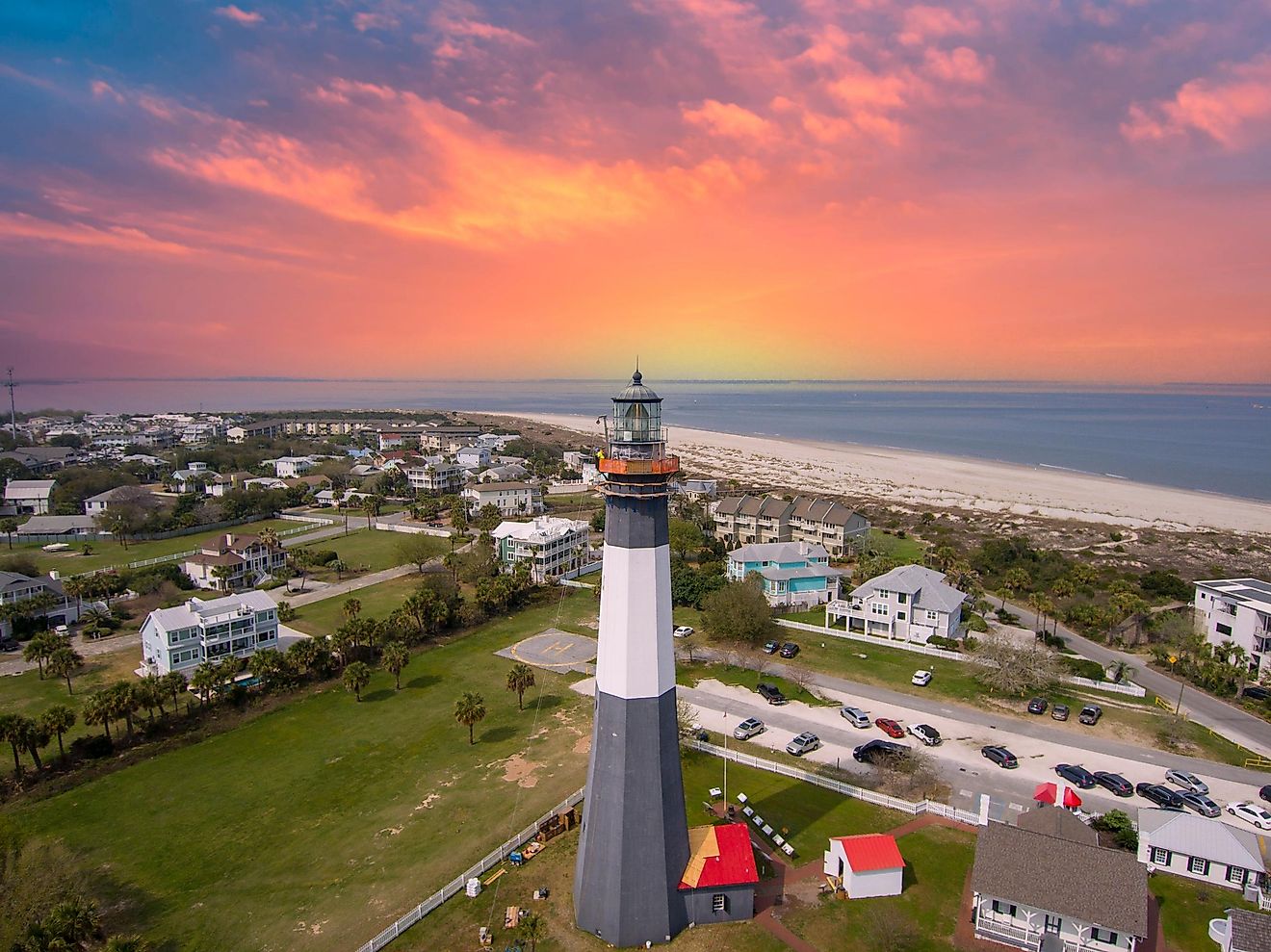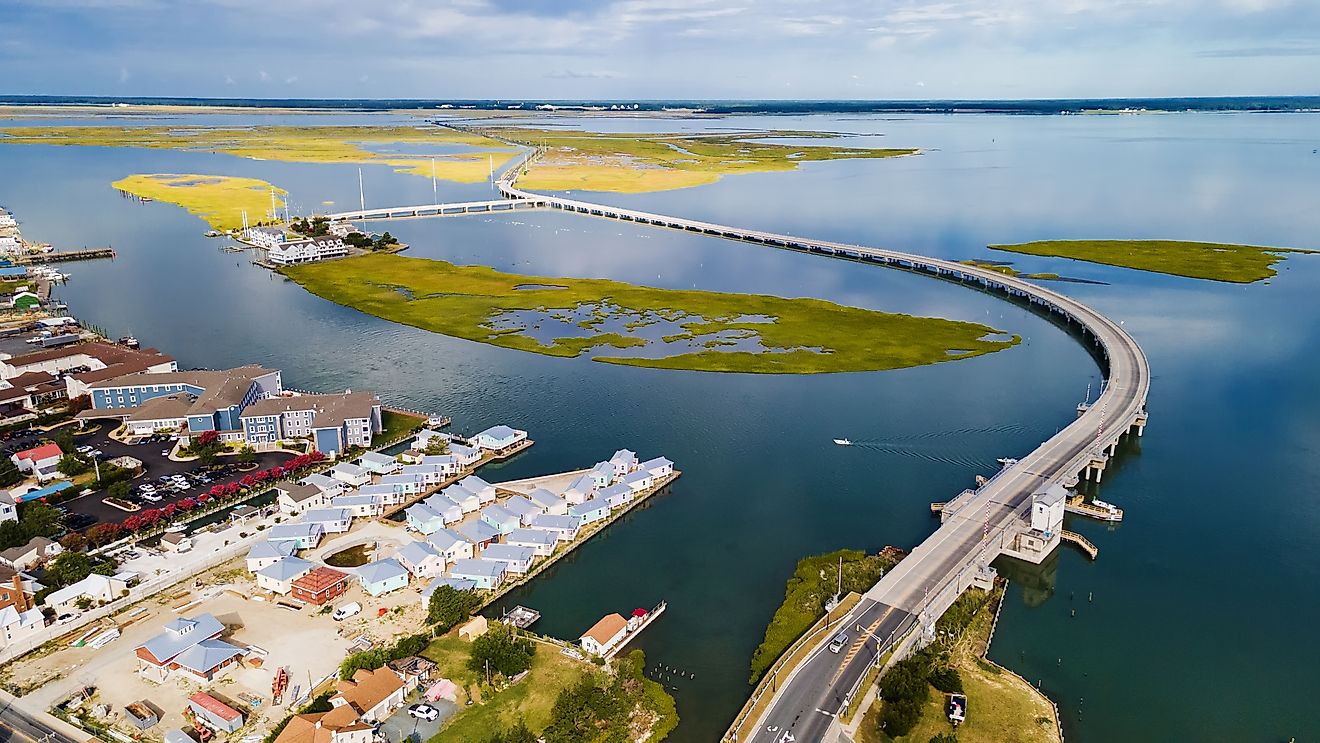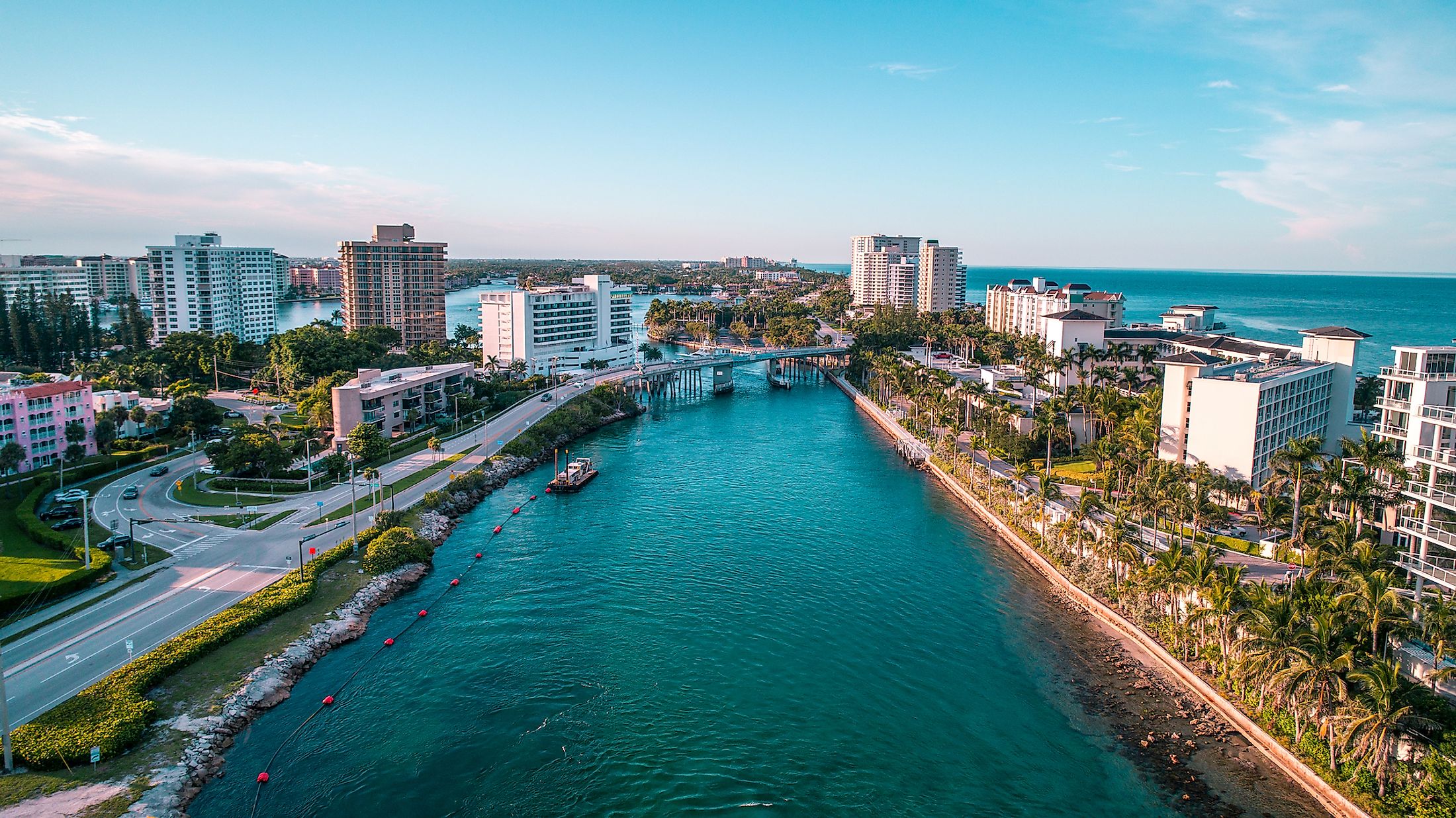
Boca Raton, Florida
Boca Raton is a city located in Palm Beach County, Southeastern Florida, United States of America. It lies 25 km north of Fort Lauderdale on the Atlantic Ocean. The city occupies a total area of 75.4 square km, of which 70.4 square km is land, and 5.0 square km of it is water, and the highest point in the city is the guard shack at Camino Gardens, which is only 7.3 meters above the sea level.
The city got its name from the Spanish term for "rat's mouth" Boca de ratones. The term appeared on early maps describing sharp-pointed rocks that gnawed or fretted ships' cables. Boca Raton was the home to the world's first personalized computer and the U.S. Army Air Corps' only war-time radar training school.
History Of Boca Raton
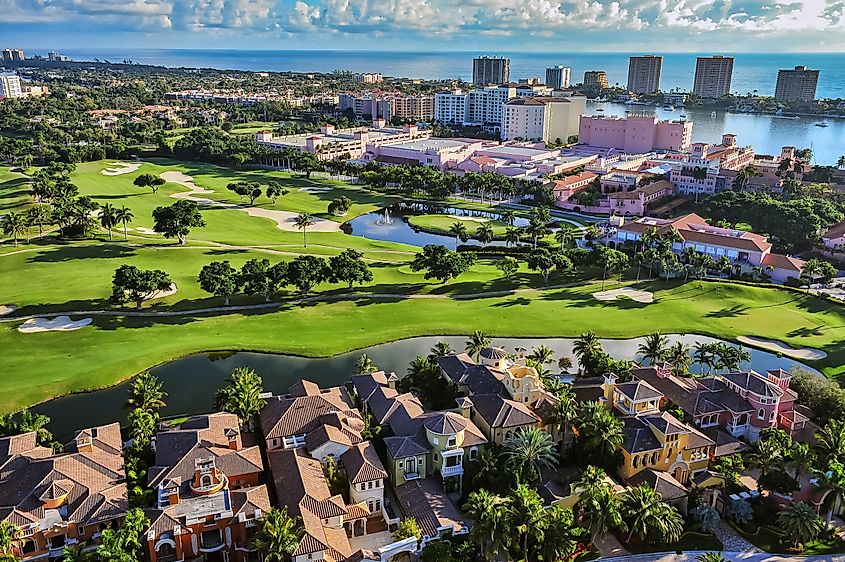
The Tequesta Indians were the earliest known inhabitants of the Boca Raton area. They lived in communities near the ocean for as long as one thousand years until the 18th century. The construction of the Florida East Coast Railway in the 1890s and the Florida East Coast Canal led many groups of resourceful pioneers to the area. In the early 1900s, Boca Raton was a tiny agricultural community of which many farmers specialized in pineapple cultivation as the climate and terrain helped grow this crop. Among these farmers, were a group of Japanese immigrants who formed a community along today's Yamato Road under the leadership of Joseph Sakai in 1904. In 1925, the Town of Boca Raton was incorporated, and the town council commissioned the famous architect Addison Mizner to plan a world-class resort community. He completed his exclusive hotel, known as Cloister Inn, in 1926, which continues its reign as a city landmark as the Boca Raton Resort & Club.

Mizner also designed a city hall for Boca Raton, and Delray architect William Alsmeyer completed the project in 1927. Town Hall sill has the original footprint of the Mizner design and was constructed by materials supplied by Mizner Industries, including tile, woodwork, and ironwork. Today, the Boca Raton Historical Society and its History Museum use the restored Town Hall.
In the 1930s and 1940s, Boca Raton became famous for its winter vegetable crop, particularly the green beans, which commanded a premium in the northern markets. The U.S. Army Air Corps established its only war-time radar training school in 1942, which brought thousands of servicemen and their families and civilian employees to the tiny community of Boca Raton with a population of 726 in 1940.

In the 1960s, South Florida experienced a great land boom, with developments pushing the Everglades and former farmlands increasingly westward. In 1962, Boca Raton had the newest state university, Florida Atlantic, founded on the old army airbase site. The I.B.M. company moved one of its computer facilities to the city in 1967. In 1981, the first personal computer was developed, the I.B.M. P.C. The population increased to almost 30,000 residents by 1970.
During the 80s and 90s, the city focused on downtown redevelopment restoring several important historical properties such as F.E.C. Railway Station and Boca Raton's original Town Hall.
Population Of Boca Raton
By 2019, Boca Raton, Florida, was home to a population of 97,500 people with a median age of 48. The city witnessed a 1.8% increase in the population in only one year as it had a population of 95,745 in 2018. About 75.5% of the city's population is considered white, of whom most are non-Hispanic. The Hispanic group represents 11.2% of the city's population, followed by Black or African American at 4.43%, Asian at 2.88%, and Other races at 2.63%. The majority of the residents in Boca Raton are U.S. citizens, and about 20% of residents were born outside the country.
The largest universities in Boca Raton by the number of degrees awarded are Florida Atlantic University, Lyn University, and Everglades University. The student population in Boca Raton consists of mostly women, mainly white and Hispanic or Latino women. The most popular majors in Boca Raton are General Business Administration & Management, General Biological Sciences, and Accounting.
Economy Of Boca Raton
The median household income in Boca Raton reaches up to $83,114. Although the income inequality in Florida is lower than the national average, recording 0.743 (measured using the Gini index), females in Boca Raton have an average income that is 1.34 times lower than the average income of males. People of Boca Raton work in many different industries, but the largest ones are Professional, Scientific, & Technical Services, and Educational Services, followed by Utilities and Finance & Insurance.
The homeownership rate in Boca Raton was 71.2% in 2019, and the average car ownership was two cars per household. About 9.08% of the population of whom poverty status is determined and the largest demographic living in poverty are Females whose ages are between 18 and 24, followed by senior female residents.
Tourist Attractions In Boca Raton

The sunny sugary white sand beaches and the gorgeous turquoise Atlantic, and the warm weather may be the biggest draw to Boca Raton. The city has plenty of museums and exhibitions, beautiful nature centers, and opportunities for visitors to ride high-speed boats, helicopters, flyboards, and airboats.
It is easy to detect the Boca Raton History Museum in downtown Boca Raton by just looking for its gold dome. The museum building was built in 1927 and is on the National Register of Historic Places, and offers exhibitions and highlight local history.
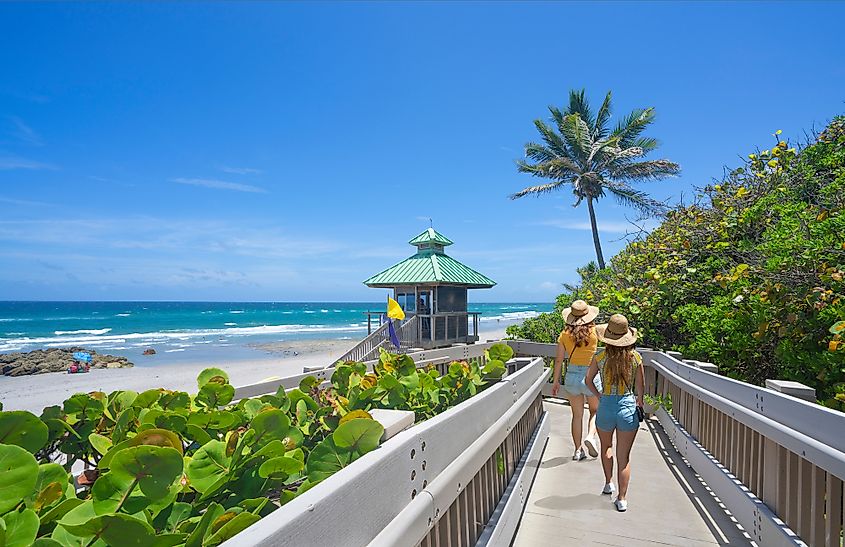
Animal kingdom fans and families who appreciate the outdoors visit the Daggerwing Nature Center. Its 3000 square foot exhibit hall features interactive exhibits and live animals. Visitors can explore the swampy surroundings via two trails of elevated boardwalks with seating and an observation tower.
